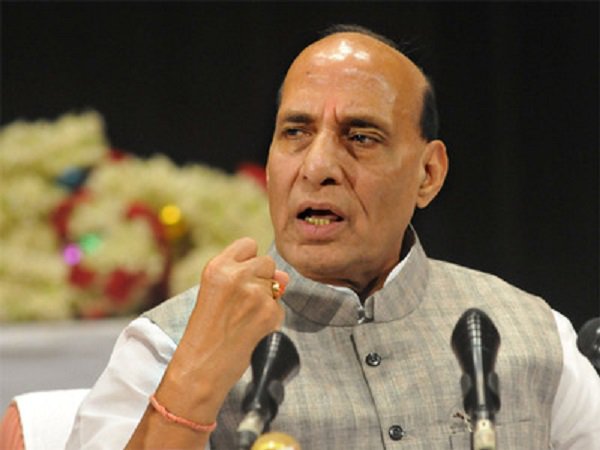Minister Rajnath Singh introduces Citizenship Amendment Bill, 2019 in Lok Sabha
The Bill seeks to facilitate the acquisition of citizenship by six identified minority communities namely Hindus, Sikhs, Jains, Buddhists, Christians and Parsis from Afghanistan, Pakistan and Bangladesh who came to India before 31st Dec. 2014.

- Country:
- India
The Union Home Minister Shri Rajnath Singh introduced the Citizenship Amendment Bill, 2019 in Lok Sabha today. The Bill seeks to facilitate the acquisition of citizenship by six identified minority communities namely Hindus, Sikhs, Jains, Buddhists, Christians and Parsis from Afghanistan, Pakistan and Bangladesh who came to India before 31st Dec. 2014.
Moving the Bill, the Union Home Minister clarified that the Act is not confined to the State of Assam. The Bill will apply to all States and Union Territories of the country. The beneficiaries of the Citizenship Amendment Bill can reside in any state of the country. The burden of these persecuted migrants will be shared by the whole country. Assam alone would not have to bear the entire burden and Government of India is committed to giving all help to the State Government and people of Assam said Shri Rajnath Singh.
Dispelling the misgivings about Citizenship Amendment Act, Shri Rajnath Singh highlighted the discrimination and religious persecution faced by these communities in these countries. They have no place to go to, except India, he said. The Act will provide relief to persecuted migrants who have come through western borders of the country to States like Gujarat, Rajasthan, Delhi, Madhya Pradesh and other States, he added.
Migrants from these communities were earlier given protection against legal action in years 2015 & 2016. Long-term visa provision was made for them.
The proposed amendment will make these persecuted migrants eligible to apply for citizenship. Citizenship will be given to them only after due scrutiny and recommendation of district authorities and the State Government. The minimum residency period for citizenship is being reduced from the existing 12 years under the present law to 7 years.
The Union Home Minister said the present Government has taken several measures to implement the Assam Accord. An important pillar of Assam Accord is Clause 6 dealing with constitutional, legislative and administrative safeguards for the protection of cultural, social and linguistic identity and heritage of Assamese people, said Shri Rajnath Singh. MHA has notified on 5thJan., 2019 a High-Level Committee consisting of eminent and knowledgeable persons from Assamese society with a very wide mandate to suggest such safeguards for the protection of the Assamese identity, including reservation in the State Assembly and in jobs. The Committee will submit its report within six months, he added.
The Union Home Minister said the Union Cabinet has also approved the grant of ST status to Six Communities of Assam namely Tai Ahom, Koch Rajbongshi, Chutia, Tea Tribes, Moran and Matak. A Bill is being introduced in the current session of Parliament, he said.
At the same time, Shri Rajnath Singh said, full safeguards will be provided to protect the interests, rights & privileges of existing Scheduled Tribes of Assam. A separate Bill will be brought to grant ST status to Bodo Kacharis in Hill districts of Assam and Karbis in the rest of Assam, he said. Sixth Schedule of the Constitution is also proposed to be amended to strengthen the Autonomous District Councils, he added.
(With Inputs from PIB)
ALSO READ
MHA revokes FCRA licenses of five notable NGOs
President Ramaphosa assents to Judicial Matters Amendment Act
Congress guarantees it will pass constitutional amendment to raise 50 per cent cap on reservations for SC, ST and OBC: Party manifesto.
Judge rejects Trump's First Amendment challenge to indictment in Georgia election case
Proposed SEZ amendment bill may figure in 100-day agenda










